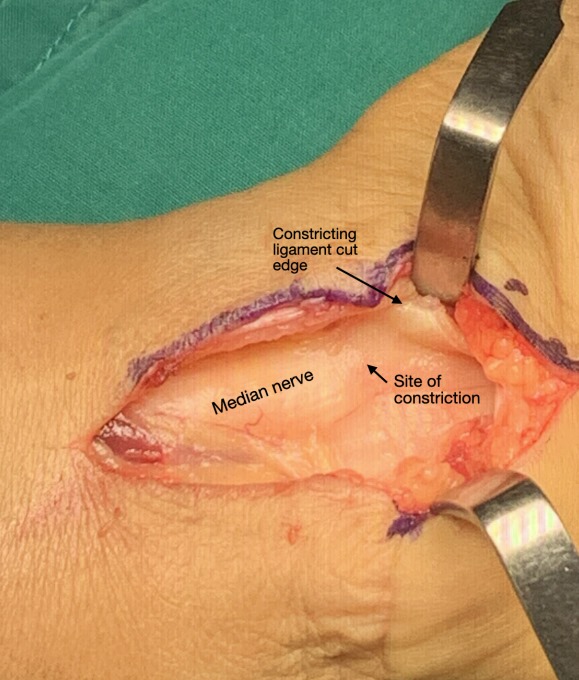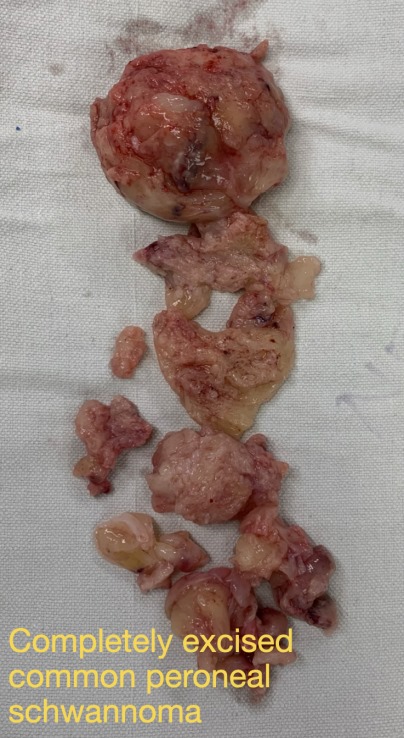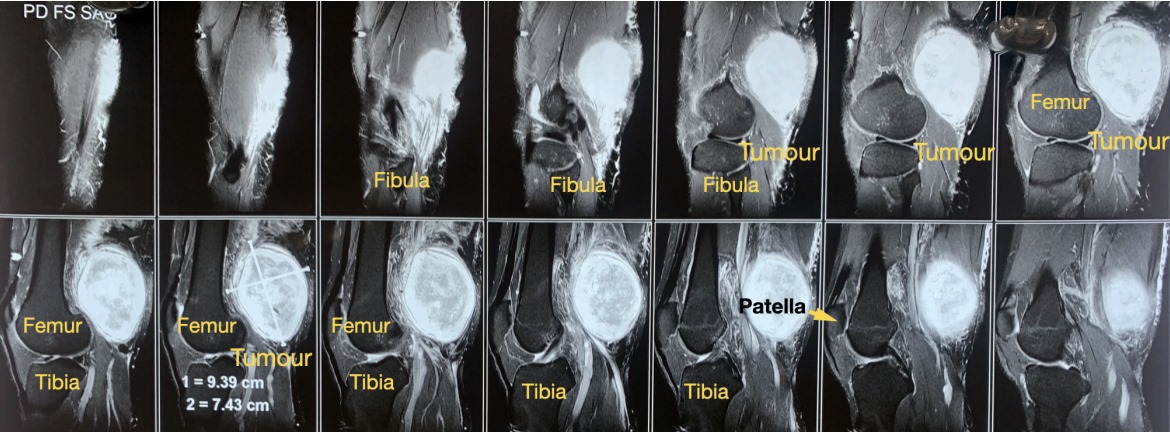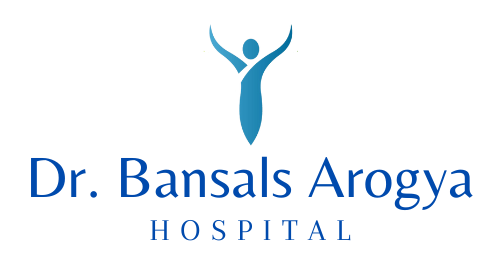Peripheral Nerve Surgery
Medical Laboratory And Specialists Services
Peripheral nerve surgery refers to surgery done for the nerves once they have exited the spinal canal. This includes brachial plexus injuries, nerve compression syndromes, and peripheral nerve tumours.
Carpal Tunnel Syndrome:
It is the most common peripheral nerve problem faced by adults. It occurs due to the median nerve that travels through, being trapped and compressed by the transverse carpal ligament at the wrist in the carpal tunnel. As the patient folds his wrist the nerve gets pressed against the ligament and gets injured. It presents with the sensation of tingling or burning with some amount of mild pain in one or both hands. It also involves a sense of numbness in the thumb, index and middle fingers. Some cases with advanced disease have weakness in moving the thumb and gripping objects. The diagnosis is done by clinical examination with nerve conduction tests.
The treatment in early cases can be just rest and usage of a splint to minimise the compression until the swelling of the nerve subsides and eventually the patient can get back to normal activity. In some early cases, local injection of steroids may help relieve symptoms. The definitive treatment is a short and simple surgery which involves a small incision on the palmar aspect of the wrist and release of the ligament that is trapping the nerve. The patient experiences significant relief in pain and tingling or burning sensations, almost immediately after surgery. The other complaints of numbness and weakness take longer to recover and have varying degrees of recovery depending on the existing damage to the median nerve.
We at Dr. Bansals Arogya Hospital, do the procedure as a day care procedure unless there are significant other problems. The procedure is done under local or regional anaesthesia and lasts between 10 minutes to 30 minutes. The patient goes home the same day and can resume normal activity with the hand within a period of 10 days.

Brachial plexus injuries:
Brachial plexus refers to a collection of nerves that originate from the cervical and upper thoracic spine. These nerves anastomose and network with one another and supply all the muscles that control our arms and hands. These nerves travel underneath collar bone and enter the arm supplying the shoulder muscles, arm muscles, forearm muscles and hand muscles. Brachial plexus injuries occur as a consequence of the arm or shoulder and the neck behind being pulled apart during accidents or during birth. They also occur when the collar bone is fractured, the neck is injured or when the humerus i.e. arm bone is fractured. They present with weakness, numbness or pain in the affected arm.
The diagnosis is done by clinical evaluation, MRI of the brachial plexus and nerve conduction studies. Most cases of mild or minor brachial plexus injuries recover over a period of 2 to 6 months and need only physiotherapy and medical management for the pain that occurs when the nerves start recovering. In cases of severe brachial plexus injuries, surgery remains the main line of treatment. Depending on the nerves involved different types of surgeries may be offered to the patient which may range from just reconnecting the cut ends of nerves to replacing a dead nerve with a live functional adjacent nerve.
Although complete recovery in cases of brachial plexus injuries is unlikely, the patient can recover significant function and may be able to carry out basic activities with the affected limb. The best time to get operated for brachial plexus injuries is around 6 months to up to 1 year. After about a year of the injury the muscles start progressively becoming weaker as they are unused and eventually they become too weak to support any function.
We at Dr. Bansals Arogya Hospital, have a team of brachial plexus and peripheral nerve surgeons who are experts in the management of such injuries and can assist in diagnosis, management and recovery of patients in need of treatment.

Peripheral nerve tumours:
Peripheral nerve tumours are commonly seen tumours such as schwannomas and neurofibromas. These tumours are benign and most of them can be excised without much trouble to the patient. The clinical features depend on the site and nerve involved. In some cases, where paralysis or numbness of the part supplied by the nerve has already set in, the recovery after surgery is less than normal. In cases with multiple neurofibromas or schwannomas such as Neurofibromatosis type 1, the tumour which is responsible for the patient’s difficulty or inconvenience alone is addressed and the rest are left alone for observation


We, at Dr. Bansals Arogya Hospital, perform peripheral nerve tumour excision under neuro monitoring so that we can preserve maximum function and provide the best results to our patients.
Why Choose Dr. Bansals Arogya Hospital for Peripheral Nerve Surgery?
At Dr. Bansals Arogya Hospital, we understand that the delicate and complex nature of peripheral nerve surgery demands the highest level of expertise and care. Here’s why Dr. Bansals Arogya Hospital stands out as your preferred center for this specialized surgery:
- Expertise and Experience:
Our team of surgeons includes some of the most experienced and skilled professionals in the field of peripheral nerve surgery. With years of training and a track record of successful surgeries, our experts are adept at handling even the most challenging cases with precision and care. - Cutting-Edge Technology:
Dr. Bansals Arogya Hospital is equipped with the latest medical technology, ensuring that our patients benefit from the most advanced diagnostic and surgical techniques. Our state-of-the-art facilities support a wide range of peripheral nerve procedures, promoting quicker recovery and better outcomes. - Comprehensive Care:
From initial consultation through post-operative recovery, we provide comprehensive care tailored to each patient’s needs. Our multidisciplinary approach ensures that all aspects of your health are considered, offering holistic treatment plans that optimize your recovery and overall well-being. - Personalized Treatment Plans:
We recognize that every patient is unique. Our surgeons and medical team work closely with you to develop personalized treatment plans that address your specific condition and health goals. This individualized approach ensures the best possible outcomes for each patient. - Exceptional Patient Support:
At Dr. Bansals Arogya Hospital, patient care goes beyond surgery. Our dedicated support team is always available to assist with pre-surgery preparations, answer any questions, and provide post-operative care. We are committed to making your experience as comfortable and stress-free as possible. - Proven Track Record:
With a high success rate in peripheral nerve surgeries, Dr. Bansals Arogya Hospital has built a reputation for excellence. Our satisfied patients are a testament to our dedication to providing superior medical care and achieving the best possible results.
Choosing Bansal’s Arogya Hospital for your peripheral nerve surgery means placing your trust in a team that prioritizes your health and recovery above all else. We are dedicated to restoring your quality of life through expert surgical care and compassionate support. Your journey to recovery begins with us.
